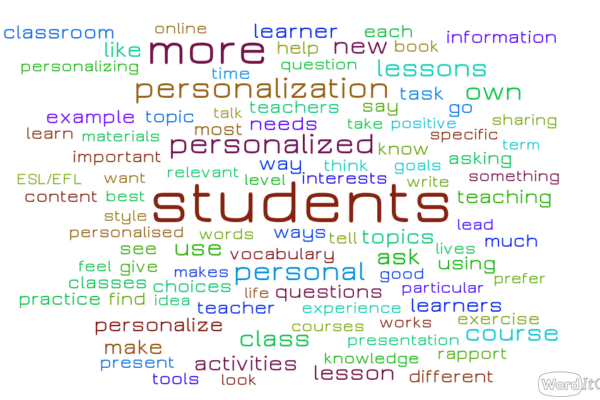Doubtful about group work? Students’ experiences may cast away that doubt
Hi everyone!
I was wondering about what I would share with you this month and, as I was rereading an old article, it came to me: group work.
Some teachers, used to teacher-fronted classes, resist promoting group work afraid of losing control and of students learning something “wrong”. If you are one of them, remember that learning is not an overnight phenomenon. On the contrary, it is developmental and it takes long. The fact is that group work has been extensively investigated[1] and its advantages greatly outnumber the eventual exposure to “wrong” language.
For the doubtful, I have selected a few excerpts from students’ classroom narratives that reveal a recurrent group-work behavior – that of helping partners.
Ann: The teacher gave us this list – it’s a shopping list for Peter – with the things he had to buy. She had taught us the difference between will and going to, so we had to use these in the activity. She also asked us to add what else Peter was going to buy. He (Ann’s partner) had great difficulty. I tried to explain to him what we were supposed to do; he couldn’t understand. She (the teacher) had given us a couple of examples of what he was going to buy. The question we had to answer was – what else was he going to buy? Well, what else from the list, right? But, he didn’t get it. He asked me: “How am I going to do that, if I don’t know what he needs”? I told him: “But it’s on the list”! Right? ((laughs)). It was tough! Eventually he understood, and we completed the activity.
Regis: We worked together – me, S. and M. I didn’t find it difficult. We did well. Each one talked and when one had a doubt, for example, about vocabulary, the other knew it. So, we exchanged ideas. I believe the objective was achieved.
Fern: My difficulties were only solved after the comments from my classmates, you know? As they talked…, I started to understand. It was with their help… and adding up the little I had understood that I ended up understanding. But it wasn’t the vocabulary explanation, understand? That is, since we were interpreting a text, what the text attempted to say – that’s what we had to get – what the text meant.
These experiences reveal the co-constructed nature of the learning process. In spite of the use of some Portuguese during the interaction, students struggle to produce output that expresses what they mean and help their partners. I hope they convince the hesitant to embrace group-work, providing evidence that learning emerges from initial doubts that are overcome with collaborative interaction.
[1] JACOBS, G. Cooperative learning or just grouping students: the difference makes a difference.In: RENANDYA, W.; JACOBS, G. (Eds.) Learners and language learning. Singapore: SEAMEO, p. 145-171, 1998.
LONG, M. & PORTER, P.A. Group-work, interlanguage talk and second language acquisition. TESOL Quarterly, n.19, v.2, p. 207-227, 1985.





